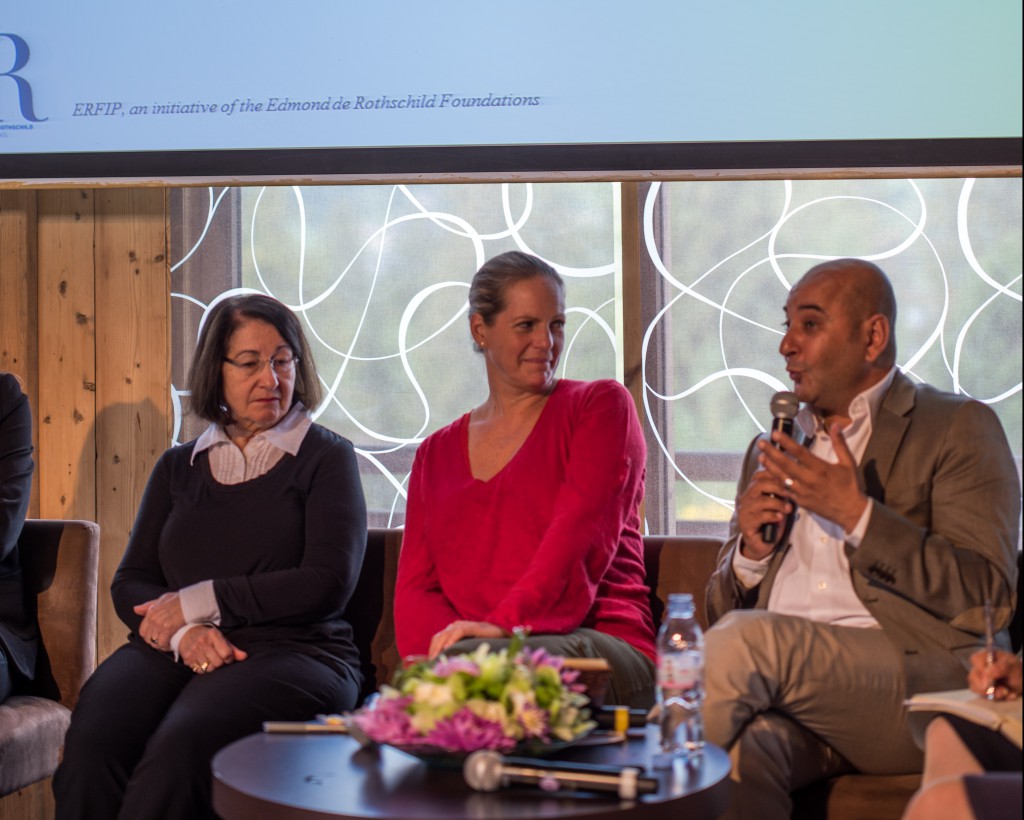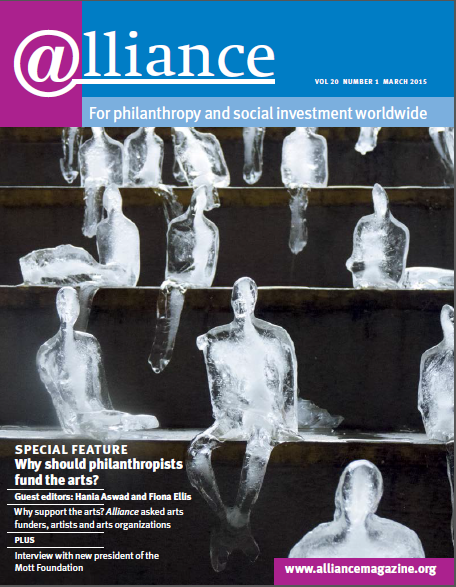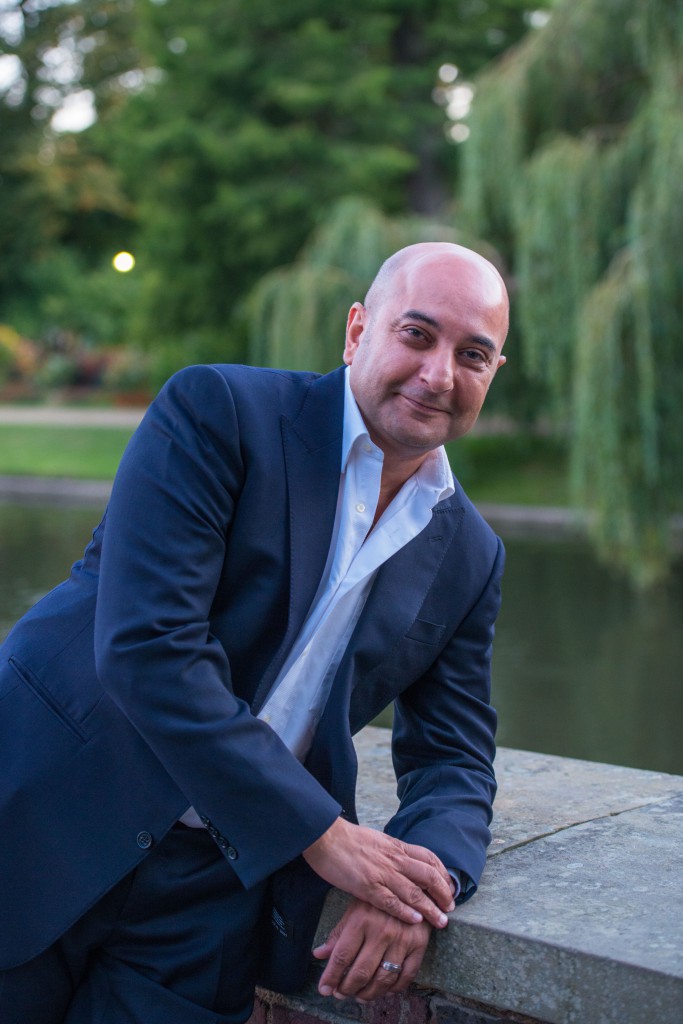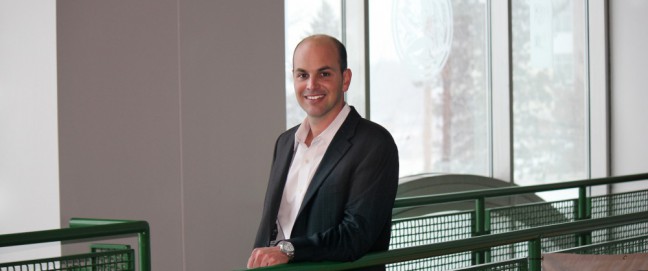When the Edmond de Rothschild Foundations (EDRF) started the ERFIP (EmpoweR Families for Innovative Philanthropy) initiative in 2013, the intent was to engage with families active in both business and giving from the Global South. What has emerged is a unique platform for private philanthropists from Africa, the Middle East and Asia. ERFIP is largely the brainchild of EDRF CEO Firoz Ladak, who told Caroline Hartnell: ‘We have found that the comfortable and professional environment we created has sparked an exciting discussion among peers facing similar challenges and opportunities.’
‘ERFIP also wants to disengage philanthropy from its silo. True, philanthropy is a distinct sector, but families play an important role in development through a combination of their businesses and charitable activities. This intersection is an incredibly powerful opportunity to build synergies, and to develop hybrid solutions and scale,’ says Ladak.
Although most of the ERFIP families have been engaged in giving for a long time, they aren’t necessarily found on the conference circuits. This, and the fact that many avoid the limelight, means that reaching them has required extensive scouting through existing relationships, in-depth research and one-to-one conversations. ERFIP seeks to engage families whose voice remains discreet and to harness their experience around local giving. It also includes a diaspora component, Ladak emphasizes, ‘so it’s not only people who live in Kenya or Turkey, but also those who give back to their country of origin. Across such a vast spectrum, we find a similar passion, innovation, heart and patience’.
Has the Edmond de Rothschild name been an advantage in identifying people to approach? Yes, because it is a recognizable brand and has a longstanding charitable tradition. With his business acumen and experience as an investment banker, Ladak has transformed the family’s legacy with a growing philanthro-entrepreneurial spirit. Today, EDRF is becoming synonymous with innovation and risk taking. Yet ERFIP, like all EDRF initiatives, is entirely independent from the Edmond de Rothschild banking group. ‘This is simply one family foundation inviting other families.’
What’s the thread that binds them?
Though ERFIP ‘guests’ are of comparable standing in their respective countries, one has to find common ground across different contexts: ‘how can we have a productive exchange with people from Nigeria, South Africa, Jordan, Saudi Arabia and India? What’s the link?’
Youth empowerment has emerged as the core thread: ‘in all of these countries, millions of youngsters enter the job market every month – how are we going to capitalize on their talents and energy? How do we bridge the gap between employable skills and school education? How to reduce poverty, improve health and avoid societal upheavals? This is a key concern for our guests; they are experimenting with ways to empower youth and coming up with practical solutions that will prove useful across regions’.
The meetings
So far there have been two meetings in the French Alps and ERFIP 2015 will happen in South Africa. ‘One of the unique features of this initiative is its intimacy and the carefully crafted cohort. Each year, we have about 40 participants from a dozen countries. They are busy people who decide to dedicate three days to sharing and learning about each other’s philanthropic engagement, so it must be worth their while. Everyone plays an active role in the design and delivery of the programme and everyone participates in a panel, showcase or roundtable. At ERFIP, you are immersed from breakfast right through the fireside chats that end the day.’
The ‘retreat’ format came about because ERFIP wanted to avoid a traditional conference setting or simply being an occasion to mingle socially, which happens in some philanthropic networks, says Ladak. ‘It’s a learning experience, and everyone should walk away with concrete, actionable lessons: improving family governance, testing new models, accessing data, building partnerships.’ ERFIP is also about breaking down the boundaries between professionals and principals. ‘We tell our guests that if they have a foundation set up, they should bring along the person who runs it. Or it could be someone from the business side. One cannot talk about professionalizing philanthropy without having professionals in the same room.’ The next generation also attends. Younger family members often want to do things differently and the ERFIP format ‘allows for debates that might not happen at home’.

Lead image: From left: Shelagh Gastrow, executive director of Inyathelo in South Africa; Baroness Ariane de Rothschild; and Firoz Ladak during the closing session at the ERFIP 2014 meeting. Photo by François du Chatenet.
What does ERFIP aim to do?
Is the aim to provide philanthropists with a peer network, or to inspire them to improve their outcomes? Are there more specific aims like becoming more strategic, building sustainability, learning from successes and failures or inspiring others?
‘All of the above,’ says Ladak. ERFIP is ‘first and foremost about peer-to-peer capacity building’, he explains. ‘The peer learning element is central to our success.’ In addressing philanthropy through a business lens, ERFIP might explore how private donors can facilitate access to capital by creating specific financing vehicles. Or how they can accompany the progress of social ventures, not only through debt or equity money, but also with advice and networks. ‘As a convener, ERFIP engages philanthropists to find solutions together.’
Strategic giving?
Not only. Traditional, catalytic or otherwise, ERFIP does not give any pre-eminence to the process, the ‘how’, over the issue, the ‘what’. Indeed, its richness stems from looking at multiple approaches. The younger generation might for instance be more focused on strategic giving, ‘on measurement and evaluation. Sometimes, though, the heart dimension can get lost. Other times, giving is religiously inspired and precepts can militate against defining impact criteria. And in many cultures, you’re not even supposed to talk about your giving. ERFIP recognizes all those who are making a huge difference.’ On the other hand, you don’t want to waste money! In coming together, traditional givers and more strategic philanthropists nurture one other.
A greater ambition …
So far, so good, but Ladak has wider ambitions for ERFIP. ‘Ultimately, the voice of Global South philanthropy should become cohesive, cogent and powerful enough to influence and transform the development discourse. On-the-ground experience and in-depth understanding of local stakeholders make development money more effective.’ Moving in this direction, Ladak has initiated conversations with international donor agencies over the added value of ERFIP. ‘It has to be more than a network,’ says Ladak. ERFIP sees itself as a ‘do-tank’ and is considering ways to capitalize on what he terms ‘the mass of knowledge, influence and resources’ at its disposal.
ERFIP participants can also influence the corporate sector in effecting social change. ‘These families are powerhouses in their respective countries; they are involved in industry, banks, services, technology.’ The more business demonstrates tangible social benefits ‘that go beyond marketing and image, the more programmes can be scaled, the greater the credence of partnerships between state, business and private giving’. Ladak gives the example of an Indian philanthropist who pushes for the private sector to contribute to educational policy, especially in vocational training. Or private equity investors from Nigeria who provide an ‘MBA in a box’ to those still unemployed two years after graduating and have facilitated the creation of small businesses like dry-cleaning and fish farms. ‘For me, that is the virtuous circle that we’re trying to encourage.’
Too much influence?
Should we be concerned about the concentration of wealth and influence in private hands, especially in places where the state is weak? Is it a danger to democracy? Ladak makes the point that money brings power in all societies. Peer-to-peer gatherings like ERFIP are therefore essential in encouraging families to think about how they can influence society positively and lead through example and strong values. He senses a growing feeling that ‘power and wealth must come with civic engagement’, and philanthropy plays a strong role in inculcating that sense of citizenship.
How can ERFIP scale up?
The intimate nature of the gatherings creates its own difficulty when it comes to scaling up. ‘The key challenge,’ says Ladak, ‘is growing while retaining a cross-cultural dimension.’ ERFIP would like to avoid ‘splitting into regional networks, many of which already exist’. Formidable links were born through ERFIP and will remain central to ERFIP’s mission. Collaboration between ‘Erfipians’ from Pakistan and Hong Kong in the health sector or sharing strategy in family governance between Kenya, South Africa and India are just two examples.
In the meantime, ERFIP has to manage its early success in time for the next meeting, which will take place in South Africa this autumn. ‘What’s the limit in terms of numbers? That’s the question! Irrespective of the final number, the quality and level of engagement that these families show in their countries and their enthusiasm to share their philanthropy more broadly is what counts.’
Firoz Ladak is chief executive officer of the Edmond de Rothschild Foundations.
Email fladak@edrfoundations.org









Comments (0)